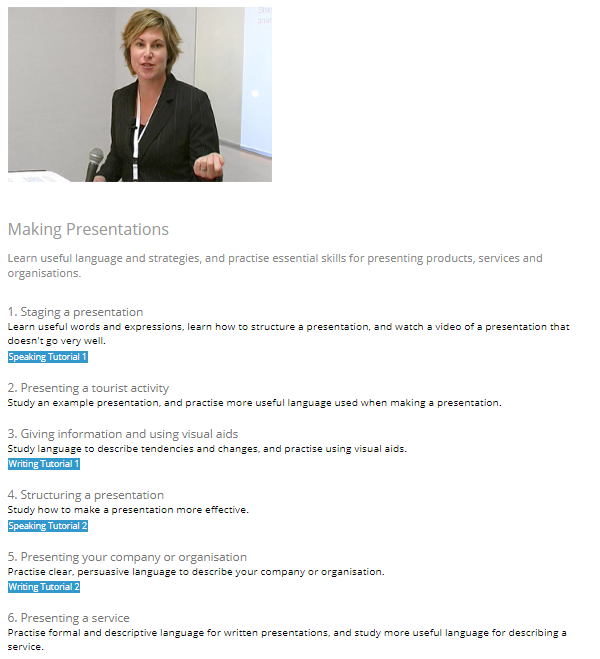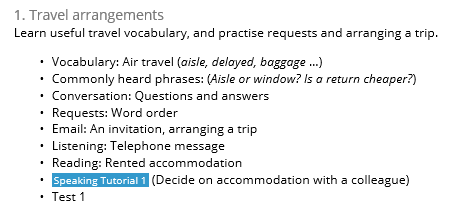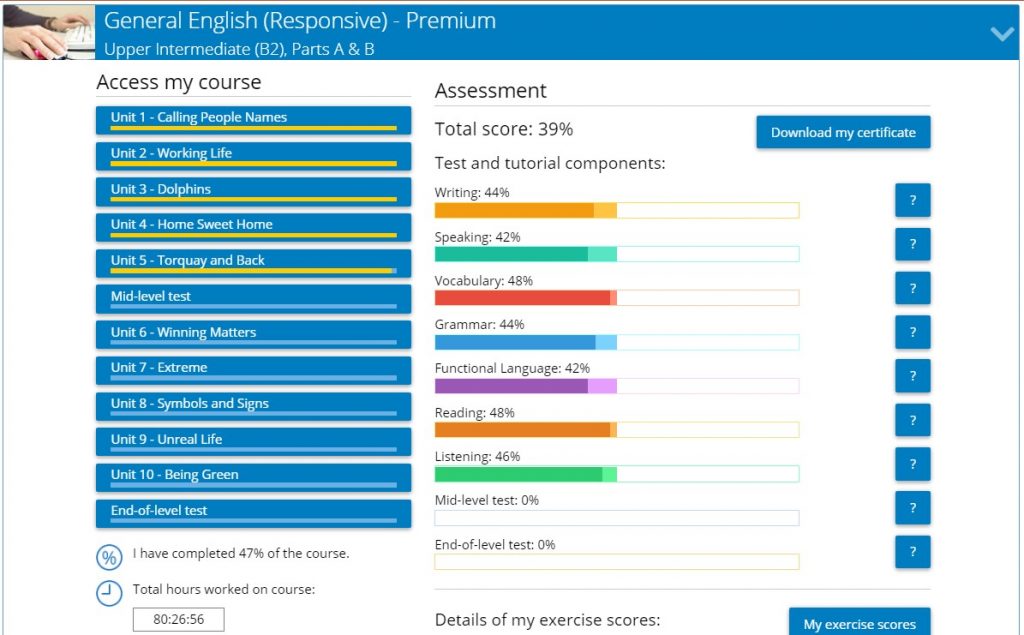
With so many online language courses available nowadays, how can training managers or directors of human resources decide which course will be the most effective for their organisation? Here are some essential questions to ask to ensure you select the right solution to meet your needs.
1. Are the topics interesting and relevant to the learners’ needs? It’s a good idea to look at the course contents or request to see the course outline to check it is relevant to your requirements. For example:

Contents page from the Making Presentations module of the Net Languages English for Work course
2. Does the course content have a logical structure? Is it easy to follow? Does it have clear outcomes? Is it carefully structured to achieve learning goals, or is it just a compilation of unrelated materials?

3. Do students have access to professionally trained, highly experienced teachers? Do the teachers have professional teaching qualifications? Are they trained in giving online courses? Are they able to adapt tutorials to make them relevant to students’ needs? Are students designated their own personal tutor rather than someone from a call centre? Are tutors available to answer students’ questions?
4. Is it engaging? Does it encourage learners to be autonomous and active? Or do they just receive information? Can learners discover how the language works and put their understanding into practice? Can learners practise language in a meaningful, natural way? Is there a variety of challenging activity types?
Exercise extracts from the Net Languages General English course, Mid-Intermediate level (B1+)
Note: Click on “cc” to select subtitles.
5. Does it cover all the required skills: reading, writing, listening and speaking? Does it cover all relevant aspects of language: grammar, vocabulary, discourse, functional language, and pronunciation?
At Net Languages, we think there should be a holistic approach to language and a focus on language in context. We believe a course should include written and spoken language, and focus on features like style and discourse and not just on words or sentences in isolation. Materials should provide authentic, useful models of the language that are relevant to the learners’ needs.
6. Is it rewarding for learners? Does it make them feel motivated and engaged? Can they see that they are making progress with their learning?
7. Does it provide full tracking and reporting services to check return on investment (ROI)? Does it record progress? Can learners and training managers clearly see how much of the course they have completed and how well they are doing?

8. Is it useful? Does it help learners to communicate in real-life situations, to use the language in a creative, personalised way and not just give standard answers to standard questions?
9. Does it work on different devices? Can you use it on smartphones, tablets, PCs and Macs?
10. Is there comprehensive technical and pedagogical support? If any issues or questions come up, will your online learning provider be able to respond directly, quickly and effectively? Will you receive personalised attention?
Net Languages materials are designed by experts to meet all of the above criteria. Visit our website to find out more about the features of our highly effective online courses.

The above information was very helpful. Thank You.
Language is an important medium to communicate with people. Learning different language helps you to gain more knowledge. It is an awesome post which will provide you how you can learn different language. Please keep writing on more different secrets tips.
Great Article! Thank you for sharing this is very informative post, and looking forward to the latest one.